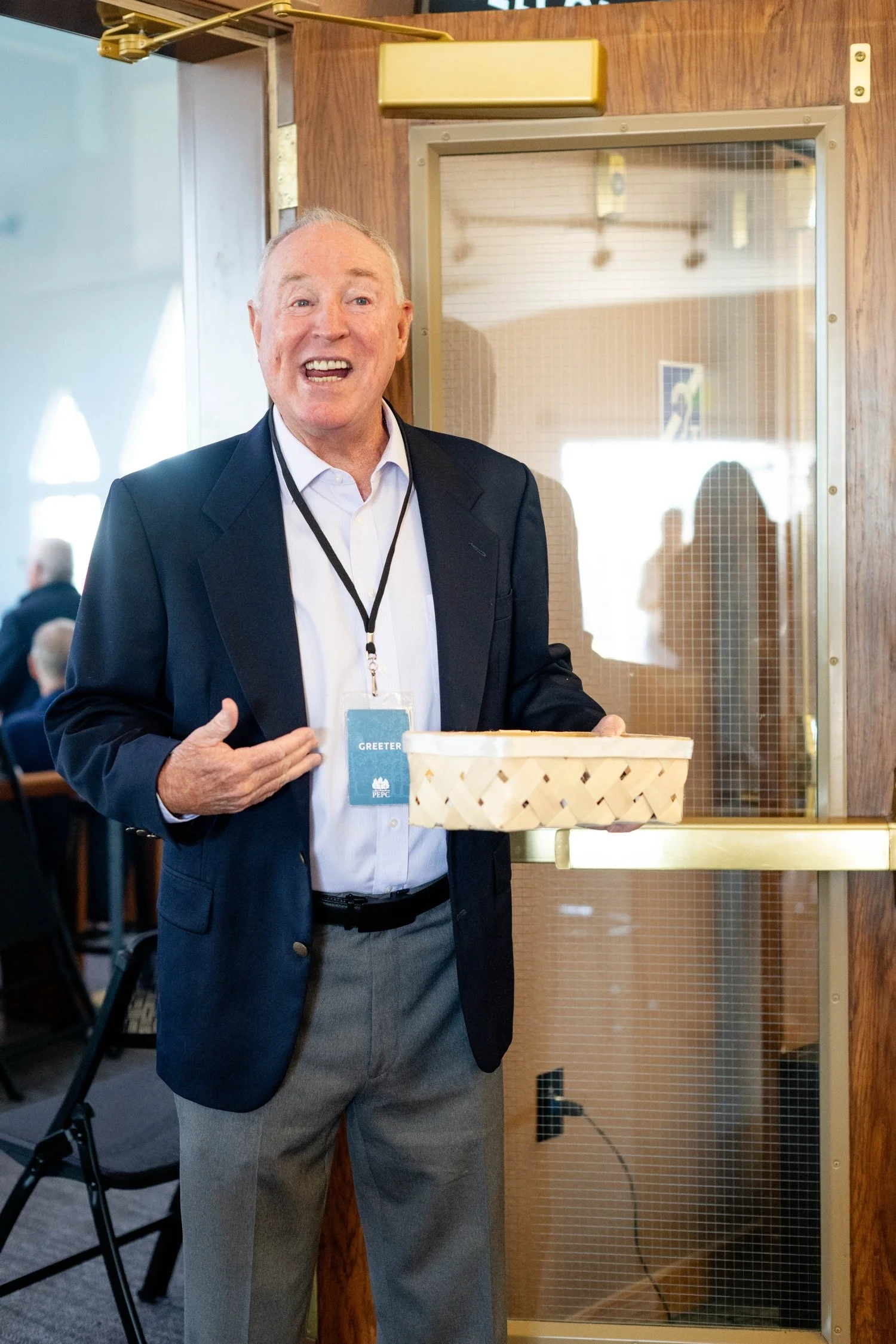Readings for the day: Romans 13-16
Imagine you are the Apostle Paul. Writing to a group of Christians living in Rome in the late 50’s AD. The Roman Empire has suffered tremendously since the reign of Augustus Caesar. Successor after successor has tried and failed to live up to his legacy. Political opposition is met with violence. The Praetorian Guard (think Secret Service of the first century) assassinates the very emperors they swear to protect. Tax rates rise and fall depending on public opinion polls. The borders of the empire are starting to crumble. The government is unstable and rulers are often certifiably insane. Nero rises to power. The initial signs are good. He seems to care about the poor. He often takes the side of the little guy. It looks like he’s being advised well by Seneca. By all accounts, things are looking up. Then he murders his stepbrother. Murders his mother. Murders rival senators who oppose him. He initiates building projects that exhaust the treasury and overtax the populace. Rumors spread about the Great Fire that burned Rome for a week in July of 64 AD. Nero blames the Christians. He starts systematically persecuting them. He imprisons them. He throws them to the lions. He burns them alive in his gardens. It’s a rough time.
Now imagine receiving this letter from Paul and reading these words, “Let every person be subject to the governing authorities. For there is no authority except from God, and those that exist have been instituted by God. Therefore whoever resists the authorities resists what God has appointed, and those who resist will incur judgment. For rulers are not a terror to good conduct, but to bad. Would you have no fear of the one who is in authority? Then do what is good, and you will receive his approval, for he is God's servant for your good. But if you do wrong, be afraid, for he does not bear the sword in vain. For he is the servant of God, an avenger who carries out God's wrath on the wrongdoer. Therefore one must be in subjection, not only to avoid God's wrath but also for the sake of conscience. For because of this you also pay taxes, for the authorities are ministers of God, attending to this very thing. Pay to all what is owed to them: taxes to whom taxes are owed, revenue to whom revenue is owed, respect to whom respect is owed, honor to whom honor is owed.” (Romans 13:1-7) How would you respond? What thoughts would go through your mind if you were living in Rome under Nero watching the country descend into chaos? How would you feel about the “governing authorities” when you see them carrying your friends off to be tortured and executed for their faith? How likely would you be to submit to them? Continue to be a model citizen? Pay your taxes? Honor the emperor? Is Paul serious? Does he not understand who’s in power here? Is he ignorant of what’s actually happening on the streets of Rome?
Clearly, Paul understands. He will be imprisoned in Rome by 60AD himself, awaiting his eventual torture and execution. He has been flogged. Stoned. Beaten. Left for dead. He has been falsely accused. Falsely imprisoned. He knows what it’s like to suffer and yet, throughout his own life, he seemed to model the very words he just wrote to his Roman friends. Jesus did as well. Jesus submitted himself to the governing authorities of this world. Herod. Pilate. The Sanhedrin. All driven by a lust for power. All corrupt to the core. And yet Jesus refused to call down legions of angels to fight at his side. He allowed his farse of a trial to stand. He refused to advocate for Himself before Pilate. He ignored Herod when he asked for a sign. Why? Jesus and Paul both understood they belonged to a Kingdom not of this world. They were citizens of a heavenly empire that transcended any earthly one. Their sole allegiance was to the God of the universe who had given all authority in heaven and earth to Jesus so there was no need to fight the power. No need to lead a rebellion. Because at best you would be replacing one sinful system with another.
At the same time, Paul is not advocating apathy. He is not calling for Christians to become doormats for the empire. What he calls for is a very proactive way of living that sets an example before culture and society of humble godliness even in the face of persecution. We are never to surrender the moral high ground! Never to surrender our deeply held Kingdom values! Never to give up Jesus for the sake of political expediency and gain! Why? First and foremost, we recognize all authority comes from God. It serves His purposes. God is able to bend both good and evil intentions to His will. God is able to use even the most corrupt to accomplish His plan. No matter what happens. No matter who gets elected President. No matter who serves in Congress. No matter who gets confirmed to the Supreme Court. ALL of them serve at God’s pleasure. He takes them down just as easily as He raises them up. All of them rule under His sovereign authority and command.
Second, Paul understands the power of a godly witness. Even corrupt rulers cannot deny the power of the gospel. This was the genius behind the leadership of Martin Luther King Jr. during the Civil Rights struggle. He believed by engaging in peaceful, non-violent protest of unjust laws that African-Americans and their allies would hold a mirror up to the corrupt soul of segregation. They believed their godly example would expose the evil legacy of slavery. They believed their political “enemies” needed salvation not destruction and this set them apart. The same was true for Nelson Mandela in South Africa. The same was true for Pope John Paul II when he led the Solidarity movement against communism in Poland. The same was true for Ghandi - though not a Christian, he based his resistance on the example of Christ - in India. In each and every case, these leaders led movements that transformed the course of nations and they were almost entirely based on the “good conduct” of their followers. “Do what is good and you will receive (the ruler’s) approval, for he is God’s servant for your good.” (Romans 13:3) This is the power of a godly witness.
Finally, Paul elevates the cardinal virtue of humility. Submission. Subjection. Offering respect and honor to the office even if the person in the office is corrupt. Paul believes we should model our lives after Jesus. As he will write to his Philippians friends, Jesus is by nature God. But Jesus did not hold onto His equality with God. He relinquished it. He gave it up. He emptied Himself of all His divine rights and riches in order to become a human being. And not just any human being but a servant. A slave. But even then Jesus wasn’t content. He took it one step further. Humbling Himself to death. The most humiliating death possible. Death on a cross. Paul sought to pattern his own life after Jesus and he calls all Christians to do the same. “Follow me as I seek to follow Christ.” (1 Corinthians 11:1) Just as Christ rendered to Caesar what was Caesar’s, Paul now calls on Christians in Rome to pay their taxes. Keep honest financial records. Respect the authorities. Honor the emperor. For in so doing, we honor Christ.
Of all the things we’ve read this year, this may be the most difficult passage for us to accept. Hate is the political currency of our day. Rage. Anger. Condemnation. Character assassination is our national pastime. We rejoice when our enemies fall. We defend our allies at all costs. We will sacrifice everything - including our Kingdom values - on the altar of political power and gain. Scorched-earth resistance is now the norm when the opposing party is in power and it is crippling our nation. And this is true for both Republicans and Democrats. Sadly, Christians seem no different than their non-Christian neighbors in this respect. In fact, we often seem to be out front leading the way and our blatant hypocrisy is on public display. Jesus weeps, friends. He weeps to see us so easily fall prey to the lust for power, influence, and control. He weeps to see us so easily sacrifice our witness and for so little. He weeps as He watches His people - citizens of the Kingdom of God - so easily and readily give up the moral high ground.
Thankfully, the truth of God remains. Though the grass withers and the flower fades, the Word of God is eternal. He is still on His throne. He still reigns from on high. He still sits at the right hand of the Father. He will bend even this time to His will. He will use even the corrupt politics of our day and age to accomplish His plan. There is nothing any human being can do that will thwart His purposes. So submit to the governing authorities, friends. Live godly lives before them. Witness to them by working for justice and righteousness. Pray without ceasing for the Spirit’s work in their hearts. Give them the respect and honor due them by virtue of the office they hold.




